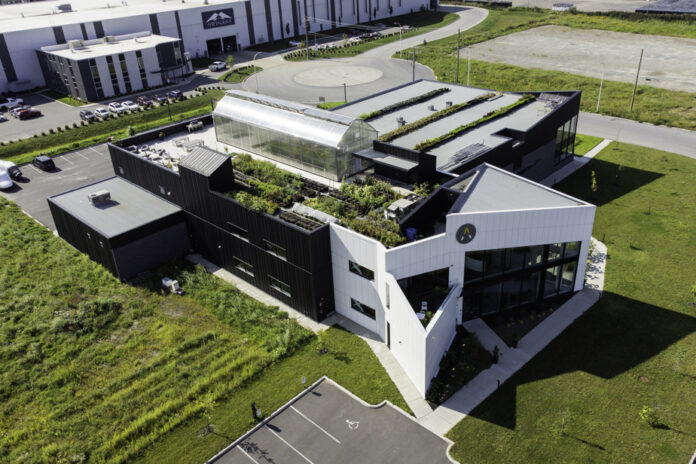The environmental shift is a challenge for the entire supply chain of the Quebec aerospace sector. Both from the point of view of training and innovation, including collaboration between players, it is also an opportunity for the local ecosystem to demonstrate its strengths in order to remain positioned by the main global aerospace clusters. .
The decarbonization of the aerospace industry cannot only aim to reduce greenhouse gas (GHG) emissions between takeoff and landing of aircraft. It is over the entire life cycle of aircraft that the sector must lead its efforts to achieve objectives as ambitious as carbon neutrality in 2050.
“The green shift is a challenge for the capacity to innovate in Quebec aerospace, not just to manufacture a product, but to design new machines and to use materials differently,” points out Mélanie Lussier, CEO of Aéro Montréal.
To do this, the Quebec industry will have to push even further what is its great strength: the ability to bring together all of its players, namely businesses, schools, universities and researchers.
More than ever, industry leaders are called upon to play their part. “The most advanced companies want their supply chains to support them,” says Mélanie Lussier. But smaller companies are not left out.
Among them, Optima Aéro focuses on the reuse of helicopter parts and engines. The adventure began 13 years ago when Toby Gauld, president and founder of Optima Aéro, began by buying end-of-life engines, dismantling them and repairing spare parts with a view to reintroducing them to the market.
Reuse avoids carbon emissions caused by the production of new parts, from ore extraction to delivery of the parts. Reusing a helicopter part avoids 646 times its weight in carbon emissions, data provided by the company shows. This is more than double when an entire engine is recycled.
Optima Aéro is growing at an average rate of 40% per year, with annual revenues of $30 million. The company of 37 employees dismantles 20 to 25 complete helicopters each year, to remove parts that will be reused on other aircraft.
Last year, the firm operating in Beloeil opened a site in Anglet, in the south-west of France, very close to Airbus, the first manufacturer of civil helicopters in the world. For the past two months, another site has been in operation in Texas, near Dallas, “the world center of the helicopter”, welcomes Toby Gauld.
In addition to companies, schools and universities spare no effort to support the Quebec aerospace sector.
The Concordia Aerospace Design and Innovation Institute (CIADI) is launching a certificate in aerospace decarbonization at Concordia University this fall. This training is aimed at engineers and industry professionals, who will discover the most recent knowledge in sustainability, fuels and their impact, hydrogen and energy storage.
This program, which will start on November 3, is completely new. “We are the first to offer this type of program,” says Carole El Ayoubi, director of CIADI and professor in the department of mechanical, industrial and aerospace engineering at Concordia University. “We know that gaps exist in skills and knowledge. […] Even recent graduates would like to know more about this subject. This is because multidisciplinary subjects such as decarbonization are still little mentioned in initial training, whose educational programs take time to evolve.
This type of initiative could gain even more momentum with the aerospace innovation zone project, intended to develop the aerospace industry of tomorrow based on decarbonization and autonomy. “These two themes will help us win, we are convinced,” says Mélanie Lussier. This is necessary to maintain our place on the world stage. »
The aerospace cluster wishes to deploy this innovation zone in Longueuil, Saint-Laurent and Mirabel. Aéro Montréal is hoping for a designation in late 2023 or early 2024. “This is the industry’s final stage of maturity: we’ve been working together for years, but we want to embody this common work in physical places to accelerate it. says Lussier.















